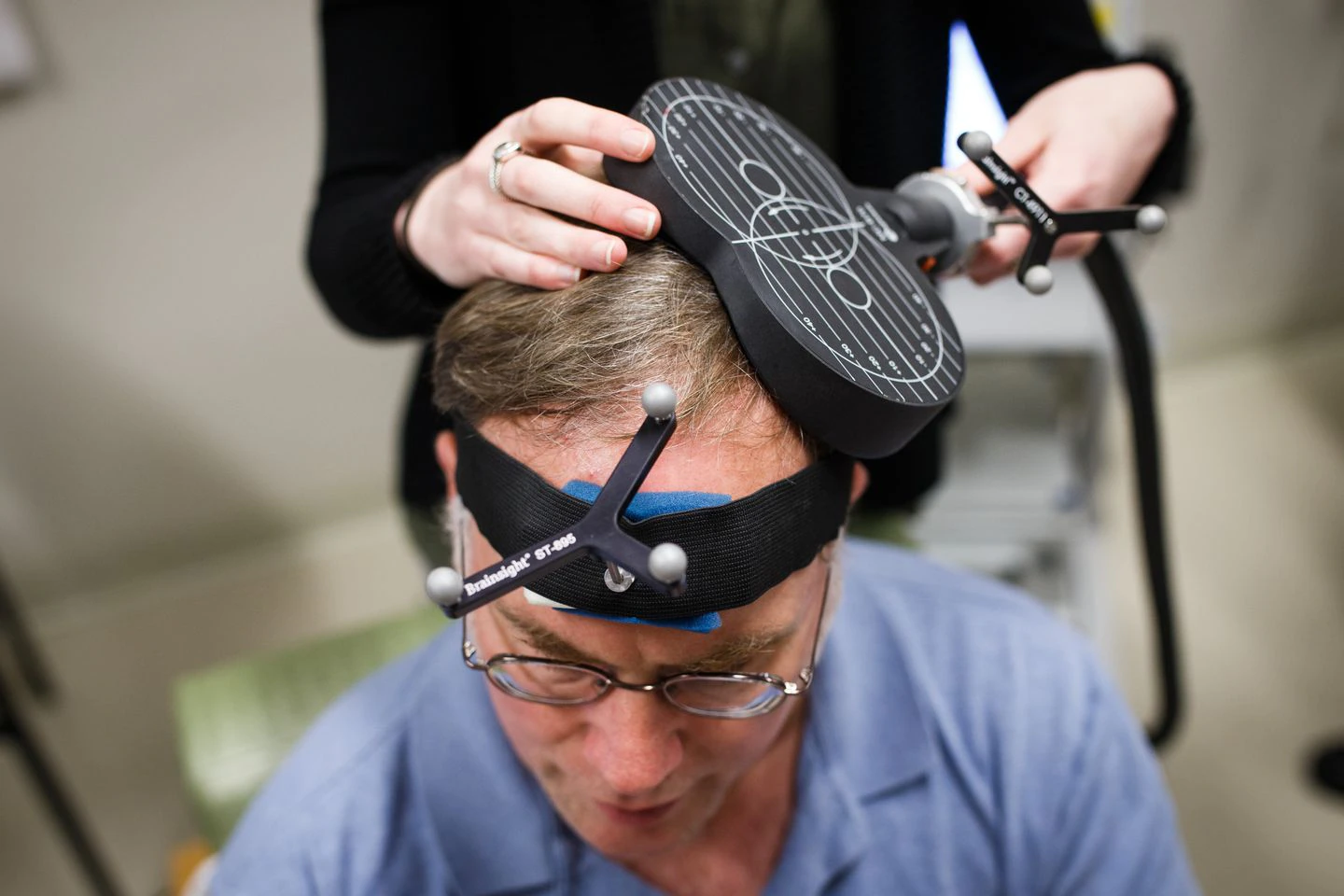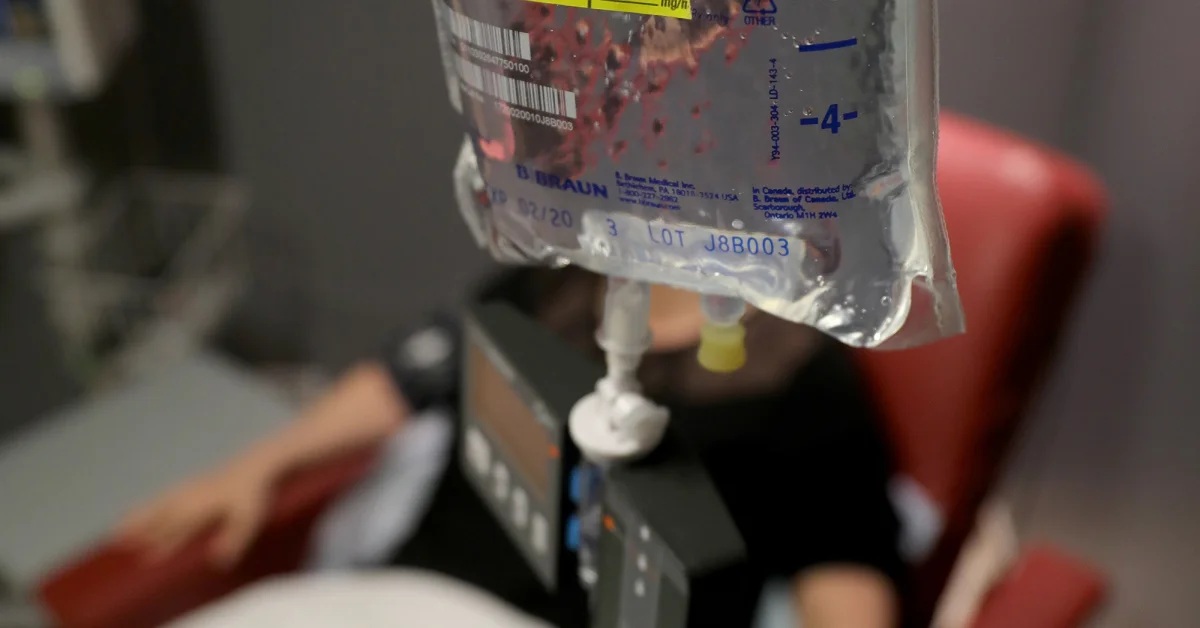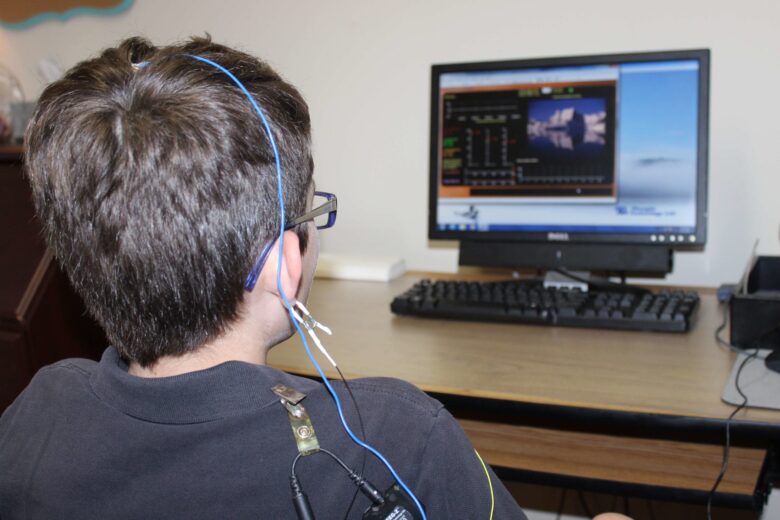Are you struggling with depression and not finding relief from antidepressants? Millions of people in the U.S. are facing this challenge. Therapy can be an incredible healing tool, but doesn’t always help with day-to-day depression symptoms, and antidepressants simply don’t work for everyone. Luckily, there are many options out there for those with treatment-resistant depression. Despite being extremely safe and highly effective in treating depression symptoms, these three treatment options remain relatively unknown:
1. Transcranial Magnetic Stimulation (TMS)

Source: bostonglobe.com
Transcranial magnetic stimulation, or TMS, is a non-invasive process that uses a small machine to send magnetic pulses into the brain. This technique has been used to measure brain activity in clinical trials since the 1980’s, and became FDA-approved as a treatment for depression in 2008.
When a TMS machine is applied to the scalp, it transmits a magnetic signal into the brain, which stimulates or activates neural activity. TMS can target a specific area of the brain, which allows us to target the region of the basal ganglia that is known to be related to depression. When this area is stimulated, it relieves depression symptoms in over 60% of patients. TMS is effective in treating various types of depression, including chronic depression, major depressive disorder, and bipolar disorder. By targeting different areas of the brain, TMS can also be used to treat a variety of other mental conditions, such as OCD, anxiety, PTSD, and smoking cessation.
TMS is an extremely safe process — the biggest health risk is a risk of seizure, which occurs in less than .01% of patients. Individuals also may not be approved for TMS if they have a predisposed risk of seizure or metal implants of any kind. Beyond that, side effects of TMS are generally mild and well tolerated. Patients most commonly report feeling a knocking sensation or sensitivity on the scalp during treatment, and mild headache. These side effects subside after each session and typically lessen in severity as the treatment course progresses.
One of the most unique aspects of TMS treatment is that it provides lasting results, unlike standard antidepressant medication. With antidepressants, when you stop taking the drug, you stop seeing the effects. With TMS, a typical treatment course consists of 30 total sessions over the course of 6 weeks, and most patients who respond to the treatment will experience relief from depression symptoms for many months or even years.
2. Ketamine

Source: time.com
Ketamine treatment for depression has been gaining popularity in recent months, so you may have heard of this one before. Traditionally used as an anesthetic, the first ketamine treatment for depression was FDA-approved in 2019. This form of ketamine is called esketamine or s-ketamine and is available in a nasal spray under the brand name Spravato. There are other forms of ketamine as well, the traditional form being intravenous infusions. Ketamine is also available as rapid dissolve tablets and intramuscular injections. Some forms of ketamine can be taken at home.
All methods of ketamine treatment for depression are safe, and this medication can be highly effective for individuals with treatment-resistant depression. This is because ketamine affects the brain in a very different way from traditional antidepressants. Ketamine interacts with glutamate production, which is thought to be a causal factor in depression. Additionally, ketamine begins to make lasting changes in your brain immediately after the first dose, and actually allows your brain to regrow lost neural connections. So, unlike other antidepressants that stop working when you stop taking them, a single dose of ketamine can trigger lasting symptom relief.
A typical ketamine treatment course consists of six infusions or treatment sessions over 2-3 weeks. Over half of patients will show a response to treatment after the first dose, and many patients experience relief for many months after the course is completed. Additional follow-up doses can be administered after the treatment course to help extend the effects of ketamine.
3. Neurofeedback

Source: drroseann.com
Neurofeedback is another non-invasive process that doesn’t involve any medications. This treatment involves retraining your brain to address persistent maladaptive thought patterns. During neurofeedback, electrodes are used to monitor the patient’s brain waves in real time and provide responsive microcurrents. By mapping brain activity, the patient can identify specific patterns produced during positive thoughts and anxious, depressed, or other negative thoughts and feelings. Microcurrent feedback prompts the mind to alter brain wave activity and change long-term patterns.
A typical neurofeedback course consists of one to two therapy sessions per week until the patient sees significant improvement. Like the other treatments listed, additional “booster” sessions can be scheduled to improve the effectiveness of the treatment. During neurofeedback sessions, the patient can simply relax in a comfortable chair and sit still for a few moments. The electrodes don’t cause any shocks or pain; the microcurrents they produce are imperceptible to the individual, but the brain picks up on the current and adjusts accordingly.
IASIS microcurrent feedback is one of the most popular forms of neurofeedback available. This method involves very short feedback sessions compared to other types of neurofeedback, and produces rapid results. Many patients see meaningful improvement after just three sessions of IASIS microcurrent feedback.
The process of adjusting brain wave patterns can apply to a variety of mental health conditions, not just depression. Neurofeedback is commonly used to treat anxiety, PTSD, OCD, ADHD, and many other conditions and disorders.
While many people may think that treatment options for depression outside of antidepressant medication remain slim, there are actually a wide variety of treatment alternatives out there. Treatments like TMS, ketamine, and neurofeedback have the potential to transform the world of mental health care by giving patients addiction-free and drug-free options that are safe and effective.
For individuals struggling with depression that is resistant to antidepressants, there is still hope. TMS, ketamine, and neurofeedback are three extremely promising treatment options that are safe, effective, and do not promote dependence on a daily medication. All of these treatments are available at certified mental health clinics such as Bespoke Treatment as part of a personalized mental health treatment plan.
